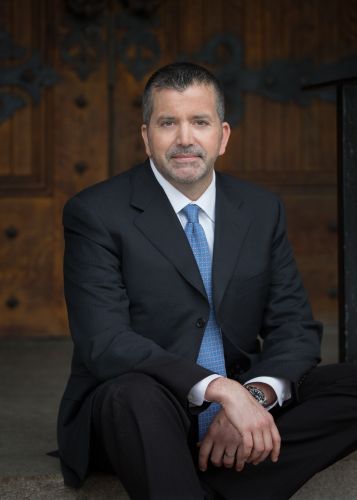In March 2025, an important new change to the rule on discovery went into effect. These changes will impact the duty prosecutors have to provide people accused of crimes with the evidence they have in their possession, custody, or control. This new rule is helpful to those charged with crimes in our Commonwealth as it ensures an even fairer experience for those charged.
What is discovery?
In criminal law, discovery is the process in which the prosecution and the defense exchange information before trial. There are different reasons why discovery is considered important:
- It prevents surprises at trial. It allows the sides to preview the evidence that may be presented at trial.
- It gives the sides a way to investigate the allegations in the case.
- It helps the sides, and the Court decide on whether a case should proceed to trial, result in a plea, or be dismissed.
- It helps make the legal process fairer to the defendant, who often has less resources than the prosecutor to gather evidence on his own.
What is the prosecution’s duty with discovery?
A case from the United States Supreme Court called Brady v. Maryland held that prosecutors have a duty to disclose exculpatory evidence. Exculpatory evidence is evidence that tends to establish that a defendant is not guilty of a crime.
The Massachusetts Rule of Criminal Procedure on discovery, Rule 14, ensures that the holding in the Brady case is followed. The rule says prosecutors have a duty to provide “all items and information favorable to the defense” in the prosecutor’s possession, custody, or control. This has to happen even if the prosecutor does not believe it is credible or reliable evidence. It also must happen regardless of if the prosecutor thinks the evidence will not be admitted by the judge at trial.
The rule provides some examples of items and information favorable to the defense:
- Deals with prosecution witnesses to testify in the Commonwealth’s favor
- Records of crimes prosecution witnesses are charged with
- Tests performed by expert witnesses that are inconclusive or inconsistent with their expert opinion
The rule makes clear that exculpatory evidence must be disclosed if it is in the possession, custody, or control of not just the prosecutor but the entire “prosecution team.” The rule explains that the term prosecution team includes not just police officers and the district attorney’s office but also:
- Federal law enforcement officers involved with investigation or prosecution
- Forensic analysts involved with investigation or prosecution
- Victim-witness advocates
- Private investigators employed by prosecutors
What are examples of discovery?
There are many different types of discovery. The rule on discovery, Rule 14, lists examples that are part of the prosecutor’s automatic disclosures, and have always been. This is discovery the prosecutor must disclose automatically to the defense. They should do this between arraignment and the first pretrial conference.
Automatic disclosures include:
- Written statements
- Recorded statements
- Information on lay witnesses
- Expert witness information
- Relevant photographs, videos, and police reports
Does the prosecution have to disclose additional discovery it comes across?
Yes, Rule 14 states that prosecutors have a “continuing duty” to disclose discovery. This means that if the prosecutor obtains discovery after it has disclosed discovery, it must disclose the additional discovery it comes across.
Are there any restrictions on the discovery that can be obtained?
Yes, the rule and case law limit what is discoverable. For example, attorney work product is protected. Attorney work product is information prepared in anticipation of a legal proceeding. Examples include information like lawyer notes and memos, or communications with clients.
Privileged information is also typically not discoverable. For example, in cases where mental health is not at issue, this includes records discussing private conversations people may have had with a mental health provider. In those cases, there is a separate process for attempting to request and share that information.
When a person who discovery is sought from thinks they are entitled to protection, they can request a protective orderfrom the court. A protective order is a court order that limits or completely restricts a person’s duty to disclose discovery.
What happens if the prosecution does not comply with Rule 14?
Rule 14 discusses what happens if the prosecution does not comply with the rules of discovery. Here is a list of ways the court can respond:
- Order the disclosure of discovery
- Exclude evidence
- Order a sanction
- Dismiss the charges
Generally, courts try to resolve discovery disputes with the parties before turning to options like excluding evidence or dismissing charges.
Why are the changes significant?
The changes to the Massachusetts discovery rules in criminal cases are the most significant since Rule 14 was enacted over 20 years ago.
Here is a summary of the changes discussed:
- New terminology like “favorable to the defense” and “prosecution team”
- More detailed explanations of the prosecution’s duty to disclose exculpatory evidence and the meaning of exculpatory evidence
- Reorganization: dividing the former Rule 14 into 5 separate rules
Understanding the rules of discovery is essential for an effective criminal defense attorney to properly prepare a case for plea discussions or trial. It is also important to keep up to date on changes to criminal procedural rules in Massachusetts.
IF YOU OR A LOVED ONE HAVE BEEN CHARGED WITH A CRIME, AND YOU NEED AN EXPERIENCED CRIMINAL DEFENSE LAWYER WORKING ON YOUR SIDE TO PROTECT YOUR RIGHTS, PLEASE CONTACT CRIMINAL DEFENSE ATTORNEY WILLIAM J. BARABINO.
CALL 781-393-5900 TO LEARN MORE ABOUT YOUR AVAILABLE DEFENSES.
Related Articles:



